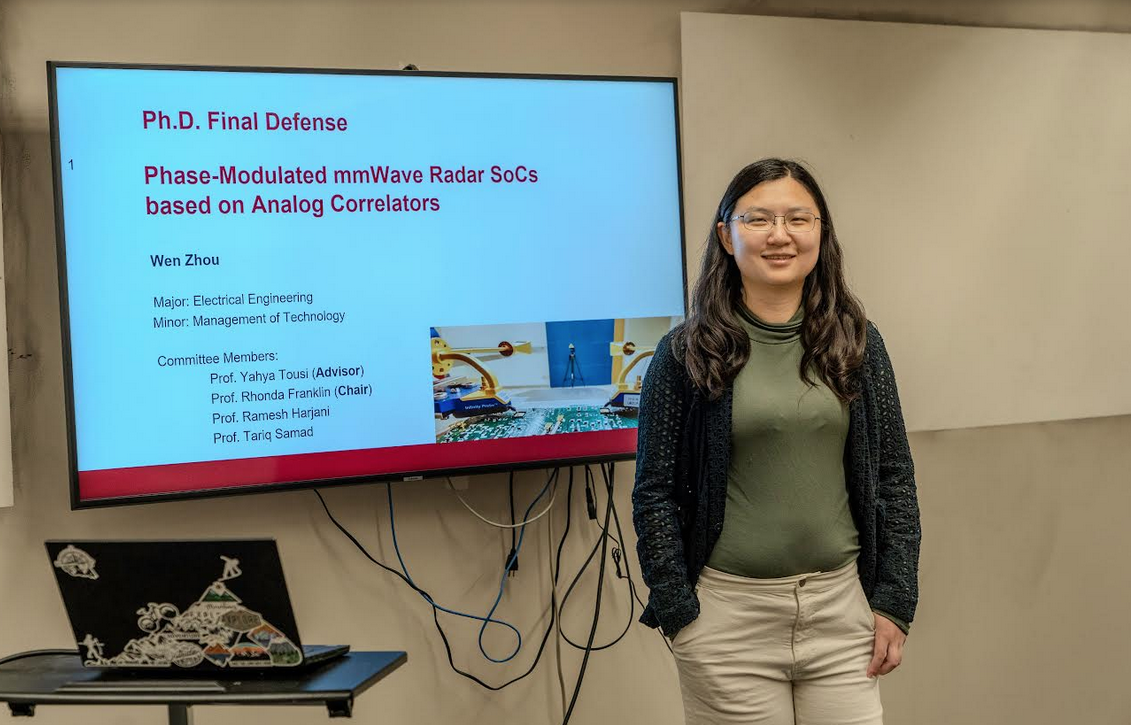

What is a PhD?
- Types of Doctorates
- A Doctor of Philosophy (PhD) is the highest globally recognized postgraduate degree that higher education institutions can award.
- PhDs are awarded to candidates who undertake original and extensive research in a particular field of study.
- Full time PhD programmes typically last three to four years, whilst part time PhD programmes typically last six to seven years.
- A PhD can lead to an academia teaching role or a career in research. A PhD can also equip you with skills suitable for a wide range of jobs unrelated to your research topic or academia.
Definition of a PhD – A Doctor of Philosophy (commonly abbreviated to PhD , Ph.D or a DPhil ) is a university research degree awarded from across a broad range of academic disciplines; in most countries, it is a terminal degree, i.e. the highest academic degree possible.
PhDs differ from undergraduate and master’s degrees in that PhDs are entirely research-based rather than involving taught modules (although doctoral training centres (DTCs) offer programmes that start with a year of lecture-based teaching to help develop your research skills prior to starting your project).
In most English-speaking countries, those that complete a PhD use the title “Doctor” (typically abbreviated to Dr) in front of their names and are referred to as such within academic and/or research settings. Those that work in fields outside of academia may decide not to use the formal doctor title but use post-nominal letters (e.g. John Smith PhD); it’s unusual though for someone to use both the Doctor title and post-nominal letters in their name.
PhD vs Doctorate
A PhD and a professional doctorate are both research-based terminal degrees.
However, where a PhD focuses on original research mostly around theoretical concepts, a professional doctorate focuses on examining existing knowledge to solve real-life, practical problems.
While there is much crossover between the two, a PhD is generally better suited for an individual to wants to advance the knowledge and understanding in their field, and a professional doctorate degree is better suited to a working professional who wants to better be able to apply knowledge and understanding to their field.
What Are the Entry Requirements for a PhD?
To be accepted on to a PhD programme, students usually need to hold at least a high ( 2:1 and above ) undergraduate degree that is related to the field of research that they want to pursue. A PhD candidate may also be expected to hold a Master’s degree , however, this does not mean you must have one, as it is still possible to enrol into a PhD without a Master’s .
Self-funded courses may sometimes be more relaxed in relation to entry requirements. It may be possible to be accepted onto a self-funded PhD programme with lower grades, though these students typically demonstrate their suitability for the role through professional work experience.
Whilst a distance learning project is possible , most PhD candidates will carry out their research over at least three years based at their university, with regular contact with two academic supervisors (primary and secondary). This is particularly the case for lab-based projects, however, some PhD projects require spending time on-site away from university (e.g. at a specialist research lab or at a collaborating institution abroad).
How Long Does a PhD Take?
Typically, full-time PhDs last 3-4 years and part-time PhDs last 6-7 years. However, at the discretion of the university, the thesis writing-up period can be extended by up to four years.
Although most doctoral programmes start in September or October, they are generally much more flexible than taught-courses and can start at any time of the year.
How Much Does a PhD Cost?
Tuition fees for UK and EU students vary between £3,000 and £6,000 per year, with the average tuition fee of £4,712 per year for 2023/24 programmes.
Tuition fees increase considerably for international students, varying between £16,000 to £25,000 per year, with an average tuition fee of £19,600 per year .
Nonetheless, most students will secure PhD funding in the form of studentships, scholarships and bursaries to help pay for these fees. These funding opportunities can either be partial, which cover tuition fees only, or full, which cover both tuition fees and living expenses.
UK national students can also apply for Doctoral Loans from Student Finance England if they are unable to secure funding.
Finding a PhD has never been this easy – search for a PhD by keyword, location or academic area of interest.
What Does a PhD Involve?
To be awarded a PhD, a doctoral student is required to produce a substantial body of work that adds new knowledge to their chosen field.
A PhD programme will typically involve four key stages:
Stage 1: Literature Review
The first year of a PhD involves attending regular meetings with your supervisors and carrying out a search on previously published work in your subject area. This search will be used to produce a literature review which should set the context of the project by explaining the foundation of what is currently known within the field of research, what recent developments have occurred, and where the gaps in knowledge are. In most cases, this will be an extension of your research proposal should you have produced one as part of your application. The literature review should conclude by outlining the overarching aims and objectives of the research project. This stage of setting achievable goals which are original and contribute to the field of research is an essential first step in a successful PhD.
The supervisor is the main point of contact through the duration of a PhD – but remember: they are there to mentor, not to teach, or do it for you . It will be your responsibility to plan, execute and monitor your own work as well as to identify gaps in your own knowledge and address them.
Stage 2: Research
The second year (and prehapse some of your third year) is when you work on your research. Having identified novel research questions from your review of the literature, this is where you collect your data to help answer these questions. How you do this will depend on the nature of your doctoral research: for example, you may design and run experiments in a lab alongside other PhD students or visit excavation sites in remote regions of the world. You should check in regularly with your supervisors to update them and run any ideas or issues past them.
Have the structure and chapters of your thesis in mind as you develop and tackle your research questions. Working with a view of publishing your work will be very valuable later on.
Stage 3: Write up of Thesis
The next key stage of a PhD is writing a doctoral thesis , which typically takes from anywhere between three months to one year. A thesis is a substantial body of work that describes the work and outcomes of the research over the previous two to three years. It should tell a detailed story of the PhD project – focusing on:
- The motivations for the research questions identified from the literature review.
- The methodologies used, results obtained, and a comprehensive analysis and discussion of the findings.
- A detailed discussion of the key findings with an emphasis on the original contributions made to your field of research and how this has been impactful.
There is no universal rule for the length of a PhD thesis, but general guidelines set the word count between 80,000 to 100,000 words.
For your thesis to be successful, it needs to adequately defend your argument and provide a unique or increased insight into your field that was not previously available.
Stage 4: Attending the Viva
A viva voce , most commonly referred to as just a ‘ viva ‘, is an interview-style examination where the PhD student is required to engage in a critical appraisal of their work and defend their thesis against at least two examiners. The examiners will ask questions to check the PhD student has an in-depth understanding of the ideas and theories proposed in their thesis, and whether they have developed the research skills that would be expected of them.
The viva is one of the final steps in achieving a PhD, and typically lasts at least two hours, but this duration can vary depending on the examiners, the university and the PhD project itself.
Once you have done the viva – you’re on the home stretch. You will typically be asked to make some amendments to your thesis based on the examiner’s feedback. You are then ready to submit your final thesis for either:
- PhD – If you pass the requirements you will be awarded a PhD degree (most common outcome),
- MPhil – If you failed to meet requirements for a PhD, you may be downgraded to an MPhil degree (uncommon outcome),
- Fail – No award is given, typically for cases of plagiarism (extremely uncommon outcome).
What Is It Like to Undertake a PhD?
We’re often asked what it is like to undertake a PhD study. Unfortunately, this isn’t a simple answer to this question as every research project is different.
To help give insight into the life of a PhD student, we’ve interviewed PhD students at various stages of their programmes and put together a series of PhD Student Interviews . Check out the link to find out what a PhD is like and what advice they have to offer you.
What Are the Benefits of A PhD?
A PhD is the highest globally recognised postgraduate degree that higher education institutions can award. The degree, which is awarded to candidates who demonstrate original and independent research in a particular field of study, is not only invaluable in itself, but sets you up with invaluable skills and traits.
Career Opportunities
First, a PhD prepares you for a career in academia if you wish to continue in this area. This takes form as a career in the Higher Education sector, typically as a lecturer working their way to becoming a professor leading research on the subject you’ve studied and trained in.
Second, a PhD also enables the opportunity for landing a job in a research & development role outside of the academic environment. Examples of this include laboratory work for a private or third sector company, a governmental role and research for commercial and industrial applications.
Transferable Skills
Finally, in possessing a PhD degree, you can show to employers that you have vital skills that make you an asset to any company. Three examples of the transferable skills that you gain through a PhD are effective communication, time management, and report writing.
- Communication – presenting your work in written and oral forms using journal papers and podium presentations, shows your ability to share complex ideas effectively and to those with less background knowledge than you. Communication is key in the professional environment, regardless of the job.
- Time management – The ability to prioritise and organise tasks is a tremendous asset in the professional industry. A PhD holder can use their qualification to demonstrate that they are able to manage their time, arrange and follow a plan, and stick to deadlines.
- Report writing – Condensing three years of work into a thesis demonstrates your ability to filter through massive amounts of information, identify the key points, and get these points across to the reader. The ability to ‘cut out the waffle’ or ‘get to the point’ is a huge asset in the professional industry.
Aside from the above, you also get to refer to yourself as a Doctor and add fancy initials after your name!
What Can I Do After a PhD?
One of the most desirable postdoctoral fields is working within independent Research and Development (R&D) labs and new emerging companies. Both industries, especially R&D labs, have dedicated groups of PhD graduates who lead research activities, design new products and take part in crucial strategic meetings. Not only is this a stimulating line of work, but the average salaries in R&D labs and emerging start-ups are lucrative. In comparison, an undergraduate with five years of experience within their given field will, on average, likely earn less than a new PhD graduate taking on a R&D position.
It’s a common misunderstanding that PhDs only opens the door for an academic career such as university lecturers and training providers. Although obtaining a PhD opens these doors, the opportunities extend far beyond educational roles. In fact, recent data from the UK’s Higher Education Statistics Agency (HESA) indicates only 23% of PhD graduates take a position in educational roles . This low percentage is primarily because PhD graduates have a wide range of skills that make them suitable for a broad spectrum of roles. This is being seen first hand by the increasing number of PhD graduates who are entering alternative roles such as research, writing, law and investment banking.
How Do I Find a PhD?
We appreciate that finding a PhD programme to undertake can be a relatively daunting process. According to Higher Education Student Statistics , over 22,000 PhDs were awarded in 2016/17 within the United Kingdom alone. Clearly there are a huge number of PhD programmes available. This can sometimes be confusing for prospective doctorates, particularly when different programmes are advertised in different places. Often, it is difficult to know where to look or where to even start. We’ve put together a list of useful sources to find the latest PhD programmes:
- A great place to start is with our comprehensive and up-to-date database of available PhD positions .
- Assuming you are still at university, speak to an existing PhD supervisor within your department.
- Attend as many postgraduate open days as you can. Whilst there, speak to current PhD students and career advisors to get an awareness of what PhDs are on offer.
- Visit the postgraduate section of university websites and the PhD Research Council section of the UKRI website.
Browse PhDs Now
Join thousands of students.
Join thousands of other students and stay up to date with the latest PhD programmes, funding opportunities and advice.

Higher Education News , Tips for Online Students
Is a PhD Degree for Me? This is What it Means
Updated: June 19, 2024
Published: December 26, 2019

Wherever you are in your educational journey, you’ve likely heard of the graduate degree called a PhD degree. You may be wondering what is a PhD degree, what are PhD requirements, and what it means to earn a PhD. At this point, you may be questioning if getting a PhD is the right next step for you.
To receive a PhD, you will add the title “Dr.” to you name, but there is much more to it than that. Here, we will dive into what a PhD means, what it takes to earn one, the different kinds of PhD degrees that exist, and the reasons why you may choose to take the path to graduate with one.
What is a PhD?
First thing’s first, let’s define all the ins and outs of what a PhD means. PhD is an abbreviation for “Doctor of Philosophy.”
A PhD is the ultimate academic degree you can earn in a field of choice. To earn a PhD, you must complete original research and evaluate a theory. More often than not, this includes data analysis. This fact is true no matter where you are in the world.
Unlike undergraduate degrees, a PhD is heavily focused on research. As such, lectures are not all that common when working towards earning the degree, but they do still exist. Rather, students will focus particularly on an aspect of the subject choice to create a dissertation. Along with a written thesis, students must present their work orally (known as a “viva voce”) to a group of examiners.
A PhD is recognized around the world as the highest academic achievement. Therefore, no matter where you go, it bears with it an international standard of understanding and a level of respect. It allows for you to be a professor in academia and work in a highly specialized position within the field.
Requirements and Length of Time
While the payoffs of a PhD may seem enticing, the journey to earn your PhD is not an easy or short one.
More often than not, a PhD comes after a master degree. Yet, that’s not always true. Some institutions allow students to skip the master degree and move straight from a bachelor degree into a PhD program.
The time length of a PhD program can vary, but it generally takes three to four years to complete. If a student chooses to study part-time, it could take upwards of six or seven years to graduate.
In order to be accepted into a PhD program, there are a variety of PhD requirements. The most important requirement tends to be proof of high academic standing from your master degree. Some schools may also factor in your bachelor degree grades.
Grades also play a role in assessing the type of funding you may receive. If you have low grades, but still want to pursue a PhD, you’ll likely have to self-fund.
Along with grades, most institutions will also require the following:
1. Proof of language proficiency in the language you will pursue your PhD.
2. resume of work experience and transcript of academic courses., 3. a personal statement sharing your reasons why you want to pursue a phd in your respective field and perhaps why you are choosing the institution., 4. a phd research proposal, which includes:.
- Your proposed research topic
- Experience regarding the subject matter
- Gaps in current knowledge, your understanding of current findings
- Your research methodology
- How your research and its implications will affect the world

Photo by Wadi Lissa on Unsplash
How to get a phd.
Getting a PhD requires planning, research, and commitment. Some schools vary in their requirements to apply, so it’s best practice to create your list of desired schools and research their needs.
You can choose to get a PhD at any age, but it’s best to start thinking proactively when you are moving along your graduate degree program.
Here are the main steps it takes to get a PhD:
1. Get a bachelor’s degree
2. complete the gre, 3. apply to graduate schools, 4. begin master’s or phd program, 5. if master’s, graduate and then apply again for a phd program, 6. complete phd coursework, 7. start research and write a dissertation, 8. share dissertation and get published, 9. graduate with a phd, types of phd.
There are different categories of PhD degrees. However, students only choose between professional and academic. Higher and honorary PhDs are awarded later in one’s career.
These include:
Granted in traditional subjects by performing academic research (PhD/Doctor of Philosophy/Th.D – Doctor of Theology)
Professional
These contribute directly to a specific vocational field (Doctor of Business Administration, Doctor of Engineering, Doctor of Education, Doctor of Social Science, Doctor of Architecture, etc.)
Higher/Honorary
To honor esteemed researchers and professionals, an honorary PhD may be rewarded (Doctor of Divinity, Doctor of Science – Science, Technology, Engineering and Math, Doctor of Science – Arts and Humanities)
Reasons to Get a PhD
Everyone has their own reasons for why they want to get their PhD. Here are some motivations behind why you may choose to pursue the degree:
1. Intellectual challenge:
As the final degree in academics, a PhD will challenge your intellectual abilities.
2. Career goals:
Your chosen career requires that you have the degree (i.e., becoming a professor).
3. Personal passion:
You enjoy the subject matter and want to be an expert in the field.
4. Research:
You have something to contribute or know how to fill a gap in the current information.

Photo by Abby Chung from Pexels
The bottom line.
Earning a Doctor of Philosophy degree is not only for those who wish to become a professor . Whether your future career requires the degree or not, you may still want to pursue the academic challenge.
The most common trait of a PhD relies on research. As such, a government agency or organization may also want to fund you in performing research if you have something worthwhile to contribute to your field of study.
As the ultimate destination in terms of degrees, the title of PhD next to your name is well-respected and universally acknowledged. However, before enrolling in a program, make sure that you have the time, resources, and personal passion to fulfill all the necessary requirements.
At UoPeople, our blog writers are thinkers, researchers, and experts dedicated to curating articles relevant to our mission: making higher education accessible to everyone.
Related Articles
A Doctor of Philosophy or Doctorate
- Choosing a Graduate Program
- Tips & Advice
- Admissions Essays
- Recommendation Letters
- Medical School Admissions
- Homework Help
- Private School
- College Admissions
- College Life
- Business School
- Distance Learning
- Ph.D., Developmental Psychology, Fordham University
- M.A., Developmental Psychology, Fordham University
More than 54,000 students earned doctoral degrees in 2016, the latest year for which figures are available, a 30 percent increase since 2000, according to the National Science Foundation . A Ph.D., also called a doctorate, is a "Doctor of Philosophy" degree, which is a misleading moniker because most Ph.D. holders are not philosophers. The term for this increasingly popular degree derives from the original meaning of the word "philosophy," which comes from the ancient Greek word philosophia , meaning "love of wisdom."
What Is a Ph.D.?
In that sense, the term "Ph.D." is accurate, because the degree has historically been a license to teach, but it also signifies that the holder is an "authority, in full command of (a given) subject right up to the boundaries of current knowledge, and able to extend them," says FindAPhD , an online Ph.D. database. Earning a Ph.D. requires a hefty financial and time commitment— $35,000 to $60,000 and two to eight years—as well as research, creating a thesis or dissertation, and possibly some teaching duties.
Deciding to pursue a Ph.D. can represent a major life choice. Doctoral candidates require additional schooling after completing a master's program to earn their Ph.D.: They must complete additional coursework, pass comprehensive exams , and complete an independent dissertation in their field. Once completed, though, a doctoral degree—often called a "terminal degree"—can open doors for the Ph.D.holder, especially in academia but also in business.
Core Courses and Electives
To obtain a Ph.D., you need to take a group of core courses as well as electives, totaling about 60 to 62 "hours," which are roughly the equivalent of units at the bachelor's degree level. For example, Washington State University offers a Ph.D. in crop science . Core courses, which make up about 18 hours, include such subjects as introduction to population genetics, plant transmission genetics, and plant breeding.
Additionally, the student must make up the remaining required hours through electives. The Harvard T.H. Chan School of Public Health offers a doctoral degree in Biological Sciences in Public Health. After core courses such as laboratory rotations, biological sciences seminars, and core principles of biostatistics and epidemiology, the Ph.D. candidate is required to take electives in related fields such as advanced respiratory physiology, advanced respiratory physiology, and ecological and epidemiological control of parasitic diseases. Degree-granting institutions across the board want to ensure that those who earn Ph.D.s have broad knowledge in their chosen field.
Thesis or Dissertation and Research
A Ph.D. also requires students to complete a large scholarly project known as a dissertation , a research report—usually 60-plus pages—which signifies that they are able to make significant independent contributions to their chosen field of study. Students take on the project, also known as a doctoral thesis , after completing the core and elective coursework and passing a comprehensive examination . Through the dissertation, the student is expected to make a new and creative contribution to a field of study and to demonstrate her expertise.
According to the Association of American Medical Colleges, for example, a strong medical dissertation relies heavily on the creation of a specific hypothesis that can be either disproved or supported by data collected through independent student research. Further, it must also contain several key elements starting with an introduction to the problem statement, conceptual framework, and research question as well as references to literature already published on the topic. Students must show that the dissertation is relevant, provides new insight into the chosen field, and is a topic that they can research independently.
Financial Aid and Teaching
There are several ways to pay for a doctoral degree: scholarships, grants, fellowships, and government loans, as well as teaching. GoGrad , a graduate school information website, provides such examples as the:
- Science, Mathematics, and Research for Transformation (SMART) Scholarship for Service Program, which provides full tuition and an annual stipend of $25,000 to $38,000.
- National Defense Science and Engineering Graduate Fellowship, a three-year graduate fellowship that is designed to support doctoral students across 15 engineering disciplines
- National Science Foundation Graduate Research Fellowship Program, a three-year program that provides an annual stipend of $34,000 and a $12,000 cost-of-education allowance for tuition and fees
As it does for bachelor's and master's degrees, the federal government also offers several loan programs to help students finance their Ph.D. studies. You generally apply for these loans by filling out the free application for federal student aid ( FAFSA ). Students planning to go into teaching after obtaining their doctoral degrees often also supplement their income by teaching undergraduate classes at the schools where they are studying. The University of California, Riverside, for example, offers a "teaching award"—essentially a stipend applied toward tuition costs—for Ph.D. candidates in English who teach undergraduate, beginning-level, English courses
Jobs and Opportunities for Ph.D. Holders
Education accounts for a large percentage doctoral awards, with elementary education, curriculum and instruction, educational leadership and administration, special education, and counselor education/ school counseling topping the list. Most universities in the United States require a Ph.D. for candidates who seek teaching positions, regardless of the department.
Many Ph.D. candidates seek the degree, however, to boost their current salaries. For example, a health, sports, and fitness educator at a community college would realize a bump in annual pay for obtaining a Ph.D. The same holds for educational administrators. Most such positions require only a master's degree, but obtaining a Ph.D. generally leads to an annual stipend that school districts add to the annual salary. That same health and fitness instructor at a community college could also move on from a teaching position and become a dean at a community college—a position that requires a Ph.D.—boosting his pay to $120,000 to $160,000 a year or more.
So, the opportunities for a doctoral degree holder are wide and varied, but the cost and commitment required are significant. Most experts say you should know your future career plans before you make the commitment. If you know what you want to get out of the degree, then the years of required study and sleepless nights may well be worth the investment.
- How to Decide Between a Ph.D. or Psy.D. in Psychology
- What Comes After a Master's Degree?
- Understanding the Definition of a Doctoral Candidate
- The Difference Between Fellowships and Scholarships
- Should I Earn a Doctorate Degree?
- How to Earn a Doctorate Degree Online
- Abbreviations and Titles All College Students Should Know
- A Step-By-Step Guide to Writing a Ph.D. Dissertation
- Types of Nursing Programs and Degrees
- What Is a Master of Social Work?
- The Meaning and Significance of a PsyD
- Top 8 Best Grad School Scholarships and Fellowships
- Considering a Graduate Degree in History?
- Top 25 U.S. Colleges for a Geology Ph.D.
- Should I Seek the MSW, PhD or DSW for a Career in Social Work?
- Should I Earn a PhD in Business Administration?
What is a PhD Degree? [2024 Guide]
As you’re taking a look at potential grad school programs, you might be asking yourself, “What is a PhD degree?”

Understanding what a PhD is and what’s involved in earning one can help you decide whether to enroll in this type of doctoral program. You might decide that a PhD is a strategic step for you to take to further your career.
Editorial Listing ShortCode:
If you choose to pursue a PhD, you’ll be glad to know that you can also earn this type of degree online through an accredited university.
What Is a PhD Degree?

After earning a bachelors degree and a masters degree, you may be considering taking your education even further.
The next step for you might be a Doctor of Philosophy degree, better known as a PhD. As a terminal degree, a PhD can set you apart as an expert in your field. Earning a doctoral degree is not a small undertaking. The process includes multiple steps and can last for several years.
Components of a Ph.D. degree program often include:
- Advanced courses in your chosen field
- Classes in research methods, data analysis, and scholarly writing
- Examination of current literature and studies related to your field
- Oral or written comprehensive exams
- Original research project—includes writing and defending a major paper about your research
The dissertation, sometimes known as a thesis, is usually the part of a PhD program that takes the longest. During the dissertation process, you’ll work under the supervision of a faculty advisor, often someone whose research interests correlate with yours. You’ll design a research project, carry it out, and write about your findings. This project is meant to contribute new ideas to your field.
A PhD is particularly suitable for students who love school settings and want to pursue academic careers. For instance, professors often have PhDs. It’s also common for scientists and other researchers to hold this type of degree. Outside of academia, a PhD could set you apart as a knowledgeable leader in your field.
Benefits of a PhD Degree

Getting your PhD can be an incredible personal goal worth achieving. Plus, a degree at this level can offer many professional benefits, such as:
- Career advancement . As a person with a PhD, you may be considered an expert in your field. That could help qualify you for a variety of top roles within your line of work.
- Higher earnings . A job promotion or a new employer might offer you a higher salary.
- Networking . You can meet new people and build professional connections as you work toward a PhD.
- Preparation for becoming a professor . Universities typically prefer to hire faculty members who hold PhDs in their area of expertise.
- Research opportunities . Before you can earn your PhD, it’s necessary to complete an original research project called a dissertation. After completing your degree, you may have additional opportunities to contribute research to your field.
If you’re willing to put in the work, then getting your PhD could be worth the effort.
How to Know If a PhD Is Right for Me

Before you sign up for a PhD program, it’s helpful to carefully weigh the decision and make sure it’s the right choice for you. You might ask yourself the following questions:
- Am I willing to commit years to the process ? PhDs take at least 3 years, and most take longer than that.
- Do I want to carry out original research ? This is a research-focused degree, and the purpose is to contribute new ideas or theories to your field.
- Does an academic career interest me ? Many people get PhDs because they want to work in higher education as teachers or researchers. Those who plan to remain as practitioners often consider professional doctorates instead.
It can also be helpful to speak with faculty members and current students to get a feel for what you can expect from PhD studies.
Applying for a Ph.D: Education Requirements

It’s necessary to put in years of study before you can apply for a PhD program. Most students need to hold at least two degrees already. But, in some cases, one may be sufficient.
- Bachelor’s degree . All graduate programs require students to have earned a four-year undergraduate degree before enrolling in advanced studies. Most PhD programs don’t specify that your bachelors degree must be in the same field as your hoped-for doctoral studies, but it can help you move through a graduate-level program with more ease.
- Master’s degree . Colleges often expect students to have earned a master’s degree before applying for PhD studies, but some programs do allow students straight out of bachelor’s degree programs. Doing a master’s degree first can provide strong preparation for the advanced coursework, research, and writing that are required in doctoral programs.
It is often required that the degrees you have be from accredited colleges. It may also be necessary to meet a minimum GPA requirement, such as a score of 3.0 or higher. Some colleges prefer PhD applicants who have graduated from previous programs with honors.
Doctor of Philosophy: Admissions Requirements

Doctoral programs can be quite selective about whom they admit because they’re looking for capable students who can keep up with the demands of the program and contribute valuable new research to the field.
In addition to meeting the education requirements, you’ll also be required to turn in records that demonstrate your academic potential. Here are some common admissions requirements:
- College transcripts and professional resume
- Letters of recommendation from people who know you academically or professionally
- Statement about relevant background, research interests, or professional goals
- Proposal that presents the original research project you’d be interested in doing
- Scores from the GRE or GMAT (not always required)
You might also connect with the department’s faculty members and find someone who would be willing to serve as your academic supervisor for your dissertation. It’s beneficial for this person’s research interests to align with your own.
Some schools have you do this before admission, and others connect admitted students to supervisors later in the enrollment process.
What Does PhD Stand For?

PhD stands for “Doctor of Philosophy.” It doesn’t mean that you’ve studied philosophy at the highest levels. Rather, the word “philosophy” in the name refers back to ancient Greek. It implies that you are someone who loves and seeks wisdom and knowledge.
You can get a PhD in many different subject areas—such as a Doctor of Philosophy in Mathematics or a Doctor of Philosophy in Psychology. PhD students explore their chosen field of study in great depth. They also learn how to conduct original research, and they undertake major research projects. By graduation, they are considered experts in their fields.
What Do You Learn in a Doctoral Degree?

In a PhD program, you’ll learn about your chosen area of study, such as biology or sociology. You will also study a niche area within that field in great depth.
Research is a significant topic in any PhD program. Your courses might include topics on:
- Advanced statistics
- Dissertation preparation
- Literature review
- Quantitative and qualitative methods
- Research methodology
These research-focused classes may be tailored to your particular area of study, such as research methodology in the social sciences or advanced statistics in criminal justice research.
What Can You Do with a PhD Degree?

Many people earn PhD degrees because they want to teach at the college level. This degree is often required for tenured faculty positions at universities.
The Bureau of Labor Statistics states that most postsecondary teachers earn between $46,690 and $172,130 each year. Research scientists often hold PhDs as well. Examples include medical scientists, biochemists, and physicists.
Additionally, there are some career paths that require a doctorate for licensure. For instance, clinical and counseling psychologists usually need to receive training at the doctoral level before they can practice independently.
Do You Need a Masters to Get a PhD?

Whether you’ll need a masters before you can begin the PhD process will depend on the program you choose.
Many PhD programs require a master’s degree as an admissions requirement. Completing a master’s program can provide a strong research and writing foundation that can help you during this advanced program. Other programs, though, let students enroll with only a bachelors degree.
There might be additional classes required to prepare you for working at the graduate level, so it may take a bit longer to complete your studies. For more information on whether you need a master’s to get a PhD , you can consult the admissions requirements of each program you’re considering.
Can You Get a PhD Online?

There are many online PhD programs available for aspiring students looking for flexibility. Some PhD programs are offered entirely online. You can take all of your classes online, and you can also receive guidance from your faculty advisor and defend your dissertation from afar.
Other programs are mostly online but require some in-person experiences. You might be asked to come to campus for a week or two of intensive study. Also, you may be asked to show up in person for your dissertation defense. Either way, online PhD studies are often more accessible for working professionals than fully on-campus programs.
How Long Does It Take to Get a PhD?

Students often spend 3 to 5 years completing a PhD program. Online programs sometimes include features like year-round classes and short course terms that encourage quick completion.
The shortest PhD programs typically do not involve writing a dissertation. There may be a different final assignment, such as a capstone project, instead. You might be able to finish one of those programs in about 3 years. Not all students finish within 5 years. Some spend around a decade on this massive undertaking. Some PhD programs set an upper limit for completion, such as 7 or 8 years.
Is a PhD a Doctor?

People with PhDs are considered experts in their fields, and the degree includes “Doctor” in its name. For that reason, PhD holders often use the title “Doctor.” A college professor, for example, might go by Dr. Smith.
Even still, there’s a difference between MD vs. PhD. A person who holds a PhD is not a medical doctor. Medical doctors earn a Doctor of Medicine (MD) degree before becoming licensed to practice medicine. In most contexts, though, people refer to professionals with PhDs as “doctors.”
What Jobs Can You Get with a PhD?

People with doctorate degrees work in both academia and professional practice. Being a college professor is quite popular among people who hold PhDs. The Bureau of Labor Statistics says that a PhD can also be helpful for obtaining jobs in higher education administration, particularly as a dean or a provost.
PhD graduates may work in research as well. Research jobs are available with colleges, government agencies, and private institutions. Researchers are needed in many different fields, including biology, mathematics, computer science, and economics. PhDs also help people rise to the top in their industries, perhaps as chief executives.
How Much Does a PhD Cost?

Some graduate schools charge just $300 to $400 per credit hour. Others may charge $2,000 per credit hour or more.
Per-credit-hour rates between $600 and $1,000 are quite common. It’s helpful to keep in mind that state universities often charge less for in-state residents than nonresidents. Your total number of credit hours may depend on how many years you spend working on your dissertation.
Some universities offer tuition-free PhD programs for qualifying participants. The students may even receive a stipend in exchange for research or teaching assistance. This arrangement is more common for on-campus programs than online ones.
What’s the Difference Between a Doctorate vs. PhD Degrees?
Is a PhD a doctorate degree ? For your terminal degree, you may have the choice between a PhD degree and a professional doctorate. While they are both doctoral degrees, they do have some differences.
Professional doctorates are sometimes a year or two quicker than PhDs, but that’s not always the case.
Is a PhD Worth It?

Yes, a PhD is worth it for many students. For one thing, holding a PhD could be the key to fulfilling your professional dreams.
If you want to be a professor, for instance, there’s a good chance that you’ll be required to have this advanced degree. Even if that’s not your ultimate goal, a PhD could be beneficial. The more education you have, the more your job security usually increases.
According to the Bureau of Labor Statistics, there’s an inverse relationship between education and unemployment. As education increases, unemployment rates decrease.
Getting Your PhD Degree Online

An exciting future as an expert in your field may await. You can earn a PhD to increase your knowledge, prove your capability, and contribute new ideas to your area of study. Getting this degree is an impressive accomplishment, and it may open new doors for your career. For convenience and accessibility, you might take a look at online PhD studies.
Many accredited colleges offer robust online PhD programs. You’ll get to take advanced courses and work with respected professors. An online program can also offer opportunities for completing a thesis or a doctoral project. You could graduate prepared to make a difference in your field.
Why not start exploring your options today?

- Daily Crossword
- Word Puzzle
- Word Finder
- Word of the Day
- Synonym of the Day
- Word of the Year
- Language stories
- All featured
- Gender and sexuality
- All pop culture
- Writing hub
- Grammar essentials
- Commonly confused
- All writing tips
- Pop culture
- Writing tips
Advertisement
abbreviation for
- Doctor of Philosophy AlsoDPhil
Discover More
Example sentences.
He also bragged about earning a PhD, a point Smerconish did not question.
Even his nametag played up his dweeby nature, labeling him “Mr. Gruber, PhD.”
Throughout her life, she faced public ridicule, legal persecution and, eventually, redemption through a PhD in clinical sexology.
“It is impossible by elections to choose normal people,” argues Yoram Gat, an Israeli software engineer with a PhD in statistics.
The son of Taiwanese immigrants, he grew up in California and earned his PhD in neuroscience at Stanford.
Damn few of them got it from me, I'm happy to say, and those that did, knew more about the subject than most PhD's.
It was a great diversion from the late nights working on my PhD.
- To save this word, you'll need to log in. Log In
doctor of philosophy
Definition of doctor of philosophy
Word history.
1651, in the meaning defined above
Dictionary Entries Near doctor of philosophy
doctor of osteopathic medicine
doctors' bills
Cite this Entry
“Doctor of philosophy.” Merriam-Webster.com Dictionary , Merriam-Webster, https://www.merriam-webster.com/dictionary/doctor%20of%20philosophy. Accessed 20 Jun. 2024.
Subscribe to America's largest dictionary and get thousands more definitions and advanced search—ad free!

Can you solve 4 words at once?
Word of the day, hue and cry.
See Definitions and Examples »
Get Word of the Day daily email!
Popular in Grammar & Usage
Plural and possessive names: a guide, more commonly misspelled words, your vs. you're: how to use them correctly, every letter is silent, sometimes: a-z list of examples, more commonly mispronounced words, popular in wordplay, 8 words for lesser-known musical instruments, birds say the darndest things, 10 words from taylor swift songs (merriam's version), 10 scrabble words without any vowels, 12 more bird names that sound like insults (and sometimes are), games & quizzes.

Have a language expert improve your writing
Run a free plagiarism check in 10 minutes, generate accurate citations for free.
- Knowledge Base
- Applying to graduate school
- Master’s vs PhD | A Complete Guide to the Differences
Master's vs PhD | A Complete Guide to the Differences
Published on November 27, 2020 by Lauren Thomas . Revised on May 10, 2024.
The two most common types of graduate degrees are master’s and doctoral degrees:
- A master’s is a 1–2 year degree that can prepare you for a multitude of careers.
- A PhD, or doctoral degree, takes 3–7 years to complete (depending on the country) and prepares you for a career in academic research.
A master’s is also the necessary first step to a PhD. In the US, the master’s is built into PhD programs, while in most other countries, a separate master’s degree is required before applying for PhDs.
Master’s are far more common than PhDs. In the US, 24 million people have master’s or professional degrees, whereas only 4.5 million have doctorates.
Table of contents
Master’s vs phd at a glance, which is right for you, length of time required, career prospects, costs and salaries, application process, other interesting articles, frequently asked questions about master's and phd degrees.
The table below shows the key differences between the two.
| Master’s | PhD | |
|---|---|---|
| Career prospects | Usually intended for a career outside of academia. | Prepares for a research career, ideally as a university professor. |
| Length of time | 1–2 years | 5–7 in the US (master’s degree included); 3–5 outside the US (after a separate master’s degree) |
| Structure | Mostly coursework, often with a semester-long or capstone project at the end. | 2 years of coursework (in the US), followed by 3–5 years of preparing a dissertation, which should make a significant original contribution to current knowledge. |
| Cost | Varies by country, university and program; usually higher upfront cost with limited financial aid available. | Tuition fees are usually waived and a living stipend provided in exchange for being a teaching or research assistant. |
| Graduate salaries | Wage premium (compared to earnings with a high school education) is 23% on average. | Wage premium is 26% on average. |
Receive feedback on language, structure, and formatting
Professional editors proofread and edit your paper by focusing on:
- Academic style
- Vague sentences
- Style consistency
See an example

A PhD is right for you if:
- Your goal is to become a professor at a university or some other type of professional researcher.
- You love research and are passionate about discovering the answer to a particular question.
- You are willing to spend years pursuing your research even if you have to put up with a lot of dead ends and roadblocks.
A master’s degree is the better choice if any of the following apply:
- You want to continue studies in your field, but you’re not committed to a career as a professional researcher.
- You want to develop professional skills for a specific career.
- You are willing to pay a higher upfront cost if it means finishing with your degree (and thus being able to work) much faster.
- You want the option to study part-time while working.
The length of time required to complete a PhD or master’s degree varies. Unsurprisingly, PhDs take much longer, usually between 3–7 years. Master’s degrees are usually only 1–2 years.
Length of a master’s
Master’s degrees are usually 2 years, although 1-year master’s degrees also exist, mainly in the UK.
Most of the degree consists of classes and coursework, although many master’s programs include an intensive, semester-long master’s thesis or capstone project in which students bring together all they’ve learned to produce an original piece of work.

Length of a PhD
In the US, a PhD usually takes between 5 and 7 years to complete. The first 2 years are spent on coursework. Students, even those who choose to leave without finishing the program, usually receive a master’s degree at this point.
The next 3–5 years are spent preparing a dissertation —a lengthy piece of writing based on independent research, which aims to make a significant original contribution to one’s field.
Master’s degrees tend to prepare you for a career outside of academia, while PhDs are designed to lead to a career in research.
Careers for master’s graduates
There are two types of master’s degrees: terminal and research-intensive. The career prospects are different for each.
Terminal master’s degrees are intended to prepare students for careers outside of academia. Some degrees, known as professional degrees, specifically prepare students for particular professions; these include the Master of Public Policy (MPP), Master of Business Administration (MBA), Doctor of Physical Therapy (DPT), Master of Fine Arts (MFA), and Master of Public Health (MPH) degrees.
Other master’s degrees, usually Master of Arts (MA) or Master of Sciences (MS or MSc) degrees, do not necessarily lead to a specific career, but are intended to be a final degree. Examples include an MS in Communications or MS in Data Analytics.
In research-intensive master’s programs, students take coursework intended to prepare them for writing an original piece of research known as the master’s thesis . Such programs are usually intended to prepare for further study in a doctoral program.
Careers for PhD graduates
As research degrees, PhDs are usually intended to lead to an academic career. A PhD can be thought of like an apprenticeship, where students learn from professional researchers (academics) how to produce their own research.
Most students aspire to become a university professor upon the completion of their degree. However, careers in academia are highly competitive, and the skills learned in a doctoral program often lend themselves well to other types of careers.
Some graduates who find they prefer teaching to producing research go on to be teachers at liberal arts colleges or even secondary schools. Others work in research-intensive careers in the government, private sector, or at think tanks.
Below are a few examples of specific fields and non-academic careers that are common destinations of graduates of those fields.
- Computer Science
- Lab Sciences
Many government jobs, including economists at a country’s central bank, are research-intensive and require a PhD. Think tanks also hire economists to carry out independent research.
In the private sector, economic consulting and technology firms frequently hire PhDs to solve real-world problems that require complex mathematical modeling.
Graduate students from the humanities are sometimes hired by museums, who can make use of their research and writing skills to curate exhibits and run public outreach.
Humanities PhDs are often well-suited to research and grant-writing roles at nonprofits. Since so much of research is funded by grants, PhD students often gain a lot of experience applying for them, which is a useful skill in the nonprofit sector.
There are a wide range of non-academic research jobs for lab scientists with doctorates in subjects like chemistry, biology, ecology and physics.
Many PhD graduates are hired by pharmaceutical companies that need to perform research to create and test their products. Government agencies, such as the Environmental Protection Agency (EPA), also hire lab scientists to work on research projects.
Job prospects after graduation vary widely based on the field. In fields like management, computer science, statistics, and economics, there’s little underemployment—even graduates from less well-known programs can easily find jobs that pay well and use the skills they’ve gained from the PhD.
However, in other fields, particularly in the humanities, many PhD graduates have difficulty in the job market. Unfortunately, there are far more PhD graduates than assistant professor roles, so many instead take on part-time and low-paid roles as adjunct instructors. Even non-academic careers can sometimes be difficult for PhDs to move into, as they may be seen as “overqualified” or as lacking in relevant professional experience.
Because career options post-PhD vary so much, you should take the time to figure out what the career prospects are in your field. Doctoral programs often have detailed “placement” records online in which they list the career outcomes of their graduates immediately upon leaving the program. If you can’t find these records, contact the program and ask for them—placement information should play an important role in your choice of PhD program.
Prevent plagiarism. Run a free check.
Although PhDs take far longer to complete, students often receive a living stipend in exchange for being a teaching or research assistant. Master’s degrees are shorter but less likely to be funded.
Both master’s degrees and PhDs lead to increased salaries upon graduation. While PhDs usually earn a bit more than those with a master’s degree, in some fields, the wages are identical, meaning that no financial benefit is gained from going on to a PhD.
Cost of a master’s
The upfront cost of a master’s degree is usually higher than a doctoral degree due to the lower amount of financial aid available. However, increased salaries also arrive faster than with a doctoral degree, because people graduate much earlier from a master’s program.
Some master’s students do receive stipends for their degrees, usually as compensation for being a teaching or research assistant. In addition, many people complete master’s degrees part time while working full-time, which allows them to fund their living costs as well as tuition.
The cost varies significantly by school and program. Public schools are usually cheaper than private ones. Some master’s degrees, such as MBAs, are notoriously expensive, but also result in much higher wages afterwards that make up for the high cost.
The master’s wage premium , or the extra amount that someone with a master’s degree makes than someone with just a high school diploma, is 23% on average. Many universities provide detailed statistics on the career and salary outcomes of their students. If they do not have this online, you should feel free to contact an administrator of the program and ask.
Cost of a PhD
PhDs, particularly outside the humanities, are usually (though not always) funded, meaning that tuition fees are fully waived and students receive a small living stipend. During the last 3–5 years of a PhD, after finishing their coursework (and sometimes before), students are usually expected to work as graduate instructors or research assistants in exchange for the stipend.
Sometimes students can apply for a fellowship (such as the National Science Foundation Graduate Research Program in the United States) that relieves them of any obligations to be a teaching or research assistant. Doctoral programs in the US tend to be better funded than in the rest of the world.
Sometimes, PhD degrees can be completed part-time, but this is rare. Students are usually expected to devote at least 40 hours a week to their research and work as teaching or research assistants.
The main cost of doctoral programs comes in the form of opportunity cost—all the years that students could be working a regular, full-time job, which usually pays much better than a graduate school stipend.
The average wage premium for PhDs is 26%, which is not much higher than the master’s degree premium.
In the US, the application process is similar for master’s and PhD programs. Both will generally ask for:
- At least one application essay, often called a personal statement or statement of purpose .
- Letters of recommendation .
- A resume or CV .
- Transcripts.
- Writing samples.
Applications for both types of programs also often require a standardized test. PhDs usually require the Graduate Record Examination (GRE), which tries to measure verbal reasoning, quantitative, critical thinking , and analytical writing skills. Many master’s programs require this test as well.
Applying for a master’s
Master’s degrees programs will often ask you to respond to specific essay prompts that may ask you to reflect upon not just your academic background, but also your personal character and future career ambitions.
Northwestern University’s Kellogg Business School requires Master’s of Business Administration (MBA) applicants write two essays, one about a recent time they demonstrated leadership and the second about their personal values.
Who you should ask for your letters of recommendation varies by program. If you are applying to a research-intensive master’s program, then you should choose former professors or research supervisors. For other programs, particularly business school, current work supervisors may be a better choice.
Some professional master’s programs require a specific test. For example, to apply to law school, you must take the Law School Admissions Test, or LSAT. For business school, you must take either the GRE or the Graduate Management Admissions Test (GMAT).
Applying for a PhD
When applying for a PhD, your resume should focus more on your research background—you should especially emphasize any publications you’ve authored or presentations that you’ve given.
Similarly, your statement of purpose should discuss research that you’ve participated in, whether as an assistant or the lead author. You should detail what exactly you did in projects you’ve contributed to, whether that’s conducting a literature review, coding regressions, or writing an entire article.
Your letters of recommendations should be from former professors or supervisors who can speak to your abilities and potential as a researcher. A good rule of thumb is to avoid asking for recommendations from anyone who does not themselves have a PhD.
If you want to know more about college essays , academic writing , and AI tools , make sure to check out some of our other language articles with explanations, examples, and quizzes.
College essays
- College essay examples
- College essay format
- College essay style
- College essay length
- Diversity essays
- Scholarship essays
Academic writing
- Writing process
- Avoiding repetition
- Literature review
- Conceptual framework
- Dissertation outline
- Thesis acknowledgements
- Burned or burnt
- Canceled or cancelled
- Dreamt or dreamed
- Gray or grey
- Theater vs theatre
A master’s is a 1- or 2-year graduate degree that can prepare you for a variety of careers.
All master’s involve graduate-level coursework. Some are research-intensive and intend to prepare students for further study in a PhD; these usually require their students to write a master’s thesis . Others focus on professional training for a specific career.
A PhD, which is short for philosophiae doctor (doctor of philosophy in Latin), is the highest university degree that can be obtained. In a PhD, students spend 3–5 years writing a dissertation , which aims to make a significant, original contribution to current knowledge.
A PhD is intended to prepare students for a career as a researcher, whether that be in academia, the public sector, or the private sector.
This depends on the country. In the United States, you can generally go directly to a PhD with only a bachelor’s degree, as a master’s program is included as part of the doctoral program.
Elsewhere, you generally need to graduate from a research-intensive master’s degree before continuing to the PhD.
This varies by country. In the United States, PhDs usually take between 5–7 years: 2 years of coursework followed by 3–5 years of independent research work to produce a dissertation.
In the rest of the world, students normally have a master’s degree before beginning the PhD, so they proceed directly to the research stage and complete a PhD in 3–5 years.
A master’s degree usually has a higher upfront cost, but it also allows you to start earning a higher salary more quickly. The exact cost depends on the country and the school: private universities usually cost more than public ones, and European degrees usually cost less than North American ones. There are limited possibilities for financial aid.
PhDs often waive tuition fees and offer a living stipend in exchange for a teaching or research assistantship. However, they take many years to complete, during which time you earn very little.
In the US, the graduate school application process is similar whether you’re applying for a master’s or a PhD . Both require letters of recommendation , a statement of purpose or personal statement , a resume or CV , and transcripts. Programs in the US and Canada usually also require a certain type of standardized test—often the GRE.
Outside the US, PhD programs usually also require applicants to write a research proposal , because students are expected to begin dissertation research in the first year of their PhD.
Cite this Scribbr article
If you want to cite this source, you can copy and paste the citation or click the “Cite this Scribbr article” button to automatically add the citation to our free Citation Generator.
Thomas, L. (2024, May 09). Master's vs PhD | A Complete Guide to the Differences. Scribbr. Retrieved June 18, 2024, from https://www.scribbr.com/graduate-school/masters-vs-phd/
Is this article helpful?

Lauren Thomas
Other students also liked, when to apply for graduate school | month-by-month timeline, how to write a statement of purpose | example, how to write a graduate school resume | template & example, get unlimited documents corrected.
✔ Free APA citation check included ✔ Unlimited document corrections ✔ Specialized in correcting academic texts
- PhD Types - Understanding Different Doctoral Degrees
Types of PhD
When is a 'PhD' not a PhD? When it's a DPhil, DBA, EdD or other type of doctorate degree.
The traditional PhD (or 'Doctor of Philosophy') is the best-known advanced research qualification, but several other types of doctoral degree exist. Some of these are academic qualifications in specific subject areas. Others are professional doctorates with a slightly different format.
The way in which candidates study for a PhD is also becoming more varied, with the opportunity to research part time or even pursue a joint doctorate degree , awarded by more than one university.
But there's no need to be confused. This page explains and compares the options available to you.
Not sure where to start? Read our step by step guide to finding the right PhD .

Designed for experienced managers and business leaders, the DBA is a prestigious and highly-specialised professional doctoral degree.

Ideal for senior teachers and policy makers, an Education Doctorate combines advanced training with original research.

Joint PhD programmes involve collaboration between two (or more) different universities. So how does that work? Who can apply? And what are the advantages (and disadvantages) of researching in this way?

The PhD is the most common variety of doctorate, but others are awarded in specific disciplines or sometimes particular countries.

Integrated PhD programmes consist of a one-year Masters followed by three years of PhD research. Find out more about what it's like to study an integrated PhD, how to apply and the funding options available.

Thinking of applying for the Doctor of Engineering (EngD)? Our guide covers everything you need to know about the qualification, including costs, applications, programme content, and how it differs from a PhD.
Comparing PhD types
Wondering which type of doctorate degree is right for you? The following table offers a quick overview of the most common types of PhD and other doctorates:
| Qualification | Full Title | Subjects | Type |
|---|---|---|---|
| PhD / DPhil | Doctor of Philosophy | All | Academic |
| DBA | Doctor of Business Administration | Business and Management | Professional |
| EngD / PhD (Eng) | Doctor of Engineering | Engineering | Professional |
| EdD / D.Ed | Doctor of Education | Education | Professional |
| DSocSci | Doctor of Social Science | Social Sciences | Professional |
| DProf | Doctor of Professional Studies | All | Professional |
| DArch | Doctor of Architecture | Architecture | Professional |
| MD | Doctor of Medicine | Medicine and Health Sciences | Professional / Higher |
| Th.D | Doctor of Theology | Theology and Religious Studies | Academic |
| DD / DDiv | Doctor of Divinity | Theology and Religious Studies | Higher / Honorary |
| Dsc / ScD | Doctor of Science | Science, Technology Engineering and Mathematics (STEM) | Higher / Honorary |
| DLitt / LitD | Doctor of Science | Arts and Humanities | Higher / Honorary |
Please note that this table doesn't include every type of doctorate. Many other subjects (and countries ) award their own specific qualifications, but we've covered some of the most popular here.
You can more about some of these degree types in our guide to different varieties of doctorate .
Understanding this table
The doctorates in the above table are divided into different types, as follows:
- Academic doctorates (such as the standard PhD) are usually awarded for original research and scholarship in traditional academic subjects. They can prepare a student for various careers, but their main focus is on broadening theoretical understanding of a subject, rather than improving professional practice.
- Professional doctorates are awarded for work that contributes directly to knowledge or practice in a specific vocational field. They still involve original research and analysis, but also incorporate more practical training and instruction. Candidates may require appropriate experience.
- Higher doctorates are usually awarded later in a person's career, as a means of recognising esteemed researchers or practitioners. Students do not normally enrol for these doctorates as traditional university degrees.
- Honorary doctorates are awarded to celebrate an individual's achievements. They do not require any specific track record of academic or professional work and can be granted at the discretion of a university. Students do not enrol for these doctorates.
As a prospective postgraduate student, you only really need to concern yourself with academic or professional research degrees.
We've included higher and honorary doctorates here in order to try and prevent them being confused with more 'conventional' PhDs (and to give you some inspiration for later in your career!).
DPhil vs PhD
Many people believe that the DPhil and PhD are different degrees. This is not true. ‘DPhil’ is an abbreviation of ‘Doctor of Philosophy’. Essentially, ‘DPhil’ and ‘PhD’ are two different ways of referring to the same doctoral degree.
‘DPhil’ is traditionally a British term and so only a few universities (most notably, the University of Oxford) still use it. Most universities around the world use the term ‘PhD’. While you might have to explain to a foreign employer what a DPhil is, you can be safe in the knowledge that both degrees are the same prestigious Doctor of Philosophy award.
Ready to start searching for a PhD ? You can filter our course search by topic, location, keywords and funding.
Our postgrad newsletter shares courses, funding news, stories and advice
FindAPhD. Copyright 2005-2024 All rights reserved.
Unknown ( change )
Have you got time to answer some quick questions about PhD study?
Select your nearest city
You haven’t completed your profile yet. To get the most out of FindAPhD, finish your profile and receive these benefits:
- Monthly chance to win one of ten £10 Amazon vouchers ; winners will be notified every month.*
- The latest PhD projects delivered straight to your inbox
- Access to our £6,000 scholarship competition
- Weekly newsletter with funding opportunities, research proposal tips and much more
- Early access to our physical and virtual postgraduate study fairs
Or begin browsing FindAPhD.com
or begin browsing FindAPhD.com
*Offer only available for the duration of your active subscription, and subject to change. You MUST claim your prize within 72 hours, if not we will redraw.

Do you want hassle-free information and advice?
Create your FindAPhD account and sign up to our newsletter:
- Find out about funding opportunities and application tips
- Receive weekly advice, student stories and the latest PhD news
- Hear about our upcoming study fairs
- Save your favourite projects, track enquiries and get personalised subject updates

Create your account
Looking to list your PhD opportunities? Log in here .

- October 11, 2023
- Education Advice
Ph.D. vs. Doctorate: What are the Differences?
UOTP Marketing

For those who have a deep-seated attitude, pursuing a doctoral degree can be a tough yet beneficial journey. Currently enrolled in a doctorate program means that a person has already scooched over college admissions, went through high stake tests and exams, and finished all those research papers and long hours spent in university libraries hitting the books. While studying for a doctorate entails asserting oneself to an extensive amount of quality time and money , its significance and purpose usually pave the way to a lucrative end.
After having finished the Master’s Degree , students begin to think about their next step in their academic career. Then, paradoxically, while navigating through academia, they find themselves baffled by the immense terms and terminologies used to label specific degrees. Because the terms “Doctorate” and “Ph.D.” are somehow interlocked and overlap, and because “PhD” is sometimes used inconsistently, it can lead to considerable confusion. Ph.D. vs. Doctorate? You might wonder what their difference is, and why they are important. E xplaining what each of these terms stands for, the difference between them, and why they are valuable, can help you steer yourself down the right path from the outset.
Doctorate Degree vs. Ph.D.

At first glance, it is pretty easy to confuse these two terms. But it is important for everyone to be able to make a distinction between the two. In this article, we will discuss the difference between Ph.D. and Doctorate in detail in order to get rid of any confusion you may have. In the academic world, the terms Doctorate and Ph.D. are currently used interchangeably. Both of them are the top cap of the ladder. However, a doctorate is mostly used as an umbrella term covering many fields ranging from professional degrees, humanities, and scientific disciplines.
A Ph.D. or Doctor of Philosophy, on the other hand, is a subcategory of a doctoral degree, it is much more distinct and clear-cut and is usually narrower in nature encompassing only humanities and scientific fields. In plain English, when someone says they are enrolling on a doctoral degree, it means they are doing a Ph.D. in a specific field. So, technically, in common parlance, there is no difference between the two terms.
But at the other end of the spectrum, one should be careful not to confuse a professional doctoral degree with a Ph.D. The former is more practical and is designed to prepare students to apply existing knowledge to find solutions to real-life problems and has a direct application to a particular profession.
A Ph.D. is theoretical by nature and is more academic and research-focused. it is often fixed on disseminating knowledge by conducting authentic research which means reviewing and identifying gaps in current literature and evaluating the relevance of existing and emerging theories within a particular field.
What Is a Ph.D. Degree and Why Should You Go for It?
Students who acquire a Ph.D. are justly proud — they wear it as a badge of identity in the academic elite. Traditionally, a Ph.D. was associated with teaching, which from Latin licentia docendi meant “license to teach”. However, the concept of Ph.D. has been on shifting sands nowadays and has become a more general term that isn’t necessarily confined to teaching only.
The Value of a PhD

Obtaining a Ph.D. helps you capitalize on the emerging academic opportunities making you more easily identifiable to employers or businesses seeking to fill professional, higher-level job positions. Many of these career options, conversely, are not available to those who do not belong to the Ph.D. club. While pursuing a Ph.D. requires devoting a tremendous effort and time and making significant personal sacrifices pushing the boundaries of knowledge, it’s all in service of the area of study you’re most passionate and zealous about. Ultimately, once you’ve attained your Ph.D., you will have achieved the pinnacle of education— something not too many people have or are able to accomplish.
FREE RESOURCE

A Guide to Choosing and Applying to Ph.D. Programs
Learn everything you need to know about selecting and applying to Ph.D. programs. Learn tips and tricks for a successful application and find your ideal program today!
What Is a Doctorate Degree?
A doctoral or doctorate degree is usually the most advanced degree one can earn in an academic discipline. Many pursue a doctorate degree to increase their professional credibility, be acknowledged as an expert in a specific field, and improve their resume.
A doctorate degree is a graduate-level credential that is usually earned after multiple years of graduate school. Earning a doctoral degree requires a significant level of research and work. In order to get this degree, one has to research a subject thoroughly, conduct new research and analysis, and provide a solution or interpretation into the field. But what types of doctoral degrees are available?
Types of Doctorate Degrees
There are two categories of doctorate degrees: an academic degree and a professional doctorate degree. An academic degree focuses on research, data analysis, and the evaluation of theory. A professional doctorate degree, on the other hand, is considered a terminal degree, which means that one has achieved the most advanced degree in the field. This degree is specifically designed for working professionals who want to grow in their careers.
Professional Doctorate Degrees
A professional doctorate is designed for working professionals who have experience in the field and want to increase their knowledge, improve their credibility, and advance their careers. This degree focuses on applying research to practical issues, coming up with interpretation and solutions, as well as designing effective professional practices within a particular field.
Professional doctoral degrees include:
Doctor of Business Administration (DBA)
The DBA degree is ideal for students who already have a general business background and are interested in delving deeper into the practical and theoretical aspects that underpin business education. More to the point, in DBA you will develop the ability to solve real-life problems, discover the relevant expertise to innovate and uphold complex business issues and so much more. Upon completion, DBA students will possess enhanced leadership and strategic skills as well as the tools to propel their careers in today’s marketplace. The Business Administration industry is keen on finding such graduates with business skills and this is indicated by the immense job positions currently available.
Doctor of Education (Ed.D.)
If you are interested in setting your eyes on creating lifelong learning among your students, making a positive influence in educational culture, contributing to the growing body of research in the education realm , or just enhancing your subject matter expertise, the Doctor of Education program ticks all the boxes. This degree maintains a rigorous approach in academic education that prepares graduates to showcase the skills and expertise to devise solutions in tackling the challenges in contemporary education practice and become transformational leaders in the industry.
Doctor of Computer Science (DCS)
The demand for computer scientists has reached its peak and it is among the most sought-after positions nowadays. With a degree in DCS, you will have the opportunity to design, apply innovative experiments, predict trends and, ultimately, develop a richer understanding and contribute to your area of expertise. After all, who doesn’t want an exciting and financially stable career?
Interested in pursuing a degree?
Fill out the form and get all admission information you need regarding your chosen program.
This will only take a moment.
Message Received!
Thank you for reaching out to us. we will review your message and get right back to you within 24 hours. if there is an urgent matter and you need to speak to someone immediately you can call at the following phone number:.
By clicking the Send me more information button above, I represent that I am 18+ years of age, that I have read and agreed to the Terms & Conditions and Privacy Policy , and agree to receive email marketing and phone calls from UOTP. I understand that my consent is not required to apply for online degree enrollment. To speak with a representative without providing consent, please call +1 (202) 274-2300
- We value your privacy.
Doctor of Medicine (M.D.)
The Doctor of Medicine degree is designed to prepare you for various medical challenges in different settings nationally and internationally. This program will further develop your critical thinking and clinical reasoning skills required for safe, high-quality medical practices. It will also improve your leadership, communication, and teamwork skills for collaborative patient care.
Doctor of Optometry (O.D.)
This professional degree typically requires four years of study. It focuses on basic biological sciences such as anatomy and physiology, microbiology, neuroanatomy, and so on. This doctoral degree will prepare, educate, and train professionals to practice at the highest level of proficiency, professionalism, and integrity.
Doctor of Psychology (PsyD)
The Doctoral of Psychology degree concentrates on the clinical and applied aspects of psychology. This type of doctorate prepares students for professional practice and clinical placement. This degree will be highly beneficial when working directly with patients who need psychology services. In addition, this degree allows doctors of psychology to confidently function as researchers and clinicians.
How to Choose a Ph.D. Program?
Choosing a Ph.D. program can be pretty challenging; it is a big academic decision and investment that requires commitment and perseverance. But how can you pick the right Ph.D. program for you? Well, there are some tips to help you choose the best fit for your goals and preferences:
- Think about the reasons why you want a Ph.D., what you expect to gain from it, and whether it is compatible with your professional goals.
- Consider your research environment.
- Take your time to research, compare, and consider multiple opportunities carefully.
- Pick a subject that interests and motivates you but is also practical.
- Ask your professors and other scholars in the field for advice.
All in all, the terms “Doctorate’’ and “Ph.D.” are in essence the same, which means all Ph.D. students are Doctoral students as well. On the other hand, earning a Ph.D. degree is no joke. If anything, Ph.D. students have the tenacity, patience, persistence, and years of hard work that you can vouch for. Ultimately, deciding what type of doctoral degree you should hop on, depends on your career goals, what you are passionate about and how you are going to achieve it.
Frequently Asked Questions
What is the difference between a doctorate and a ph.d..
In academic contexts, the terms “Doctorate” and “Ph.D.” are often used interchangeably, but there is a distinction. A Doctorate is an umbrella term covering a wide range of fields, including professional degrees, humanities, and scientific disciplines. A Ph.D., or Doctor of Philosophy, is a specific type of doctoral degree, typically focused on research and academic pursuits in the humanities and scientific fields.
Why should I pursue a Ph.D.?
Pursuing a Ph.D. can be a valuable endeavor, as it opens up academic and research opportunities, enhances your expertise in a specific field, and makes you more attractive to employers seeking candidates for high-level positions. It’s a chance to push the boundaries of knowledge and become an expert in your chosen study area.
What are the benefits of a professional doctorate?
Professional doctorate degrees, such as Doctor of Business Administration (DBA) or Doctor of Education (Ed.D.), are designed for working professionals who want to apply research to practical issues in their field. These degrees can enhance your career prospects, leadership skills, and problem-solving abilities within your profession.
How do I choose the right Ph.D. program?
To choose the right Ph.D. program, consider your career goals, research environment, and personal interests. Take your time to research and compare programs, seek advice from professors and experts in your field, and ensure that the program aligns with your professional aspirations.
What are the main differences between academic and professional doctorate degrees?
Academic doctorate degrees focus on research, theory evaluation, and data analysis, often leading to careers in academia or research. Professional doctorate degrees are more practical, designed for working professionals, and concentrate on applying research to real-world problems within a specific field.
Can I earn a Ph.D. in any field?
Ph.D. programs are available in various fields, including humanities, social sciences, natural sciences, engineering, and more. However, the specific availability of Ph.D. programs may vary by field and university.
Is a Ph.D. a challenging journey?
Yes, pursuing a Ph.D. can be a challenging journey that requires dedication, patience, and years of hard work. It involves conducting original research, writing a dissertation, and often teaching or assisting in courses. It’s a significant commitment, but it can be highly rewarding.
What are the potential career opportunities after earning a Ph.D.?
With a Ph.D., you can pursue careers in academia as a professor or researcher, work in research and development roles in various industries, or take on leadership positions in organizations. The specific career path will depend on your field of study and personal interests.
Share it with your friends!
Explore more.

Accounting vs. Finance Degree: Which Major to Choose?

12 Important Bookkeeping Skills You Need for a Successful Career
Recent resources.

What Are the Best Study Techniques You Should Try?

Top 10 Types of Assessment of Learning

How Long Is a College Semester?

Characteristics of Visual Learners
INTERESTED IN LEARNING MORE?
Chat with an Admissions Officer Now!

- Associates Degree
- Bachelors Degrees
- Masters Degrees
- Doctoral Degrees
- Faculty & Staff
- Accreditation
- Student Experience
QUICK LINKS
- Admission Requirements
- Military Students
- Financial Aid

EdD vs PhD – Key Differences Compared
- Degree Spotlight
- Online Learning Community
EdD and PhD programs are degrees in education but cater to distinct career goals. Learn more.
Why should I get an EdD degree?
Are you considering a doctorate to propel your career in education? A master's degree has equipped you with valuable knowledge, but you're hungry to make a bigger impact. Doctor of Education (EdD) and Doctor of Philosophy (PhD) programs offer a path forward, but how do these doctorates differ? The key lies in their focus.
What is an EdD degree?
An EdD degree is oriented toward professionals who want to learn to leverage educational leadership skills. Combining research and application, the EdD can be applied to various industries inside and outside of education. With an EdD, you can spearhead educational change at the district or school level, craft innovative curricula, or guide future educators.
EdD vs PhD
Are you a passionate educator ready to take the next step and become a leader who shapes the future of education? Then, an EdD program might be the perfect fit for you. The focus of an EdD program is on practical application. You'll delve into the latest educational theories and strategies but with a clear emphasis on how to implement them effectively in real-world educational settings. EdD programs are designed for busy professionals, so expect a curriculum that blends rigorous coursework with flexible learning options.
If you’re more interested in delving deeper into the theoretical underpinnings of education or seeing yourself as a future professor who teaches and conducts groundbreaking research, a PhD in education might be a better fit. A PhD program emphasizes original research, pushing the boundaries of educational knowledge.
The key takeaway? Both EdD and PhD programs are degrees in education, but they cater to different career goals. An EdD equips you to be a change agent in the field, while a PhD prepares you to become a scholar who advances educational knowledge.
EdD Degree Online
Arizona Online’s EdD in Educational Leadership – in the Educational Leadership & Policy (EDLP) unit – is designed to advance knowledge and address enduring and future problems in education by:
- Exploring issues of social justice for educational equity and opportunity
- Engaging in research situated in socio-cultural, economic, and political contexts
- Addressing the significance of changing and challenging educational contexts
Students continue to work as full-time practitioners while studying and applying new knowledge to their daily practice.
The benefits extend far beyond the classroom. EdD programs often attract experienced professionals, creating a unique learning environment. Your classmates – who are often current school administrators, deans, and educational professionals – bring much practical experience. This collaborative atmosphere fosters knowledge exchange, allowing you to learn from each other's successes and challenges. The connections you build in the program can evolve into valuable professional networks that propel your career forward long after graduation.
Doctor of Education Salary
EdD degree jobs vary depending on your goals. According to the Bureau of Labor Statistics (BLS), EdD graduates who become school principals, leading middle or high schools, enjoy a competitive median salary of $101,320. According to Payscale, superintendents – responsible for the whole district's success – command even higher salaries, averaging $144,547 nationwide.
But leadership isn't the only option. EdD graduates can also work to develop curriculums and set educational standards. Instructional coordinators, for example, earned a median salary of $66,490 in 2022, according to the BLS.
For those passionate about technology, EdD programs focusing on e-learning can lead to careers overseeing tech initiatives or online programs. Education Technology Specialists, for example, currently earn an average annual salary of $80,965 (Glassdoor).
And, of course, an EdD qualifies graduates to teach. College professors enjoy a median annual salary of $80,840 (BLS, 2022), with varying salaries based on experience and institution.
EdD Programs
If your career goals aren't limited to teaching or research, an EdD is better than a PhD. An EdD goes beyond traditional academics, equipping you with the skills to make a real-world difference in the field of education. An EdD is your springboard to impactful careers across the educational spectrum. Think school administration, curriculum development, or policy leadership in K-12 or higher education. The possibilities extend beyond the school walls, with opportunities in healthcare, government, and even the business sector. Earning an EdD could be the key to unlocking your potential if you're passionate about leading and making a tangible impact.
Recent Articles

What is Bilingual Journalism?

Commencement at the University of Arizona

What Can You Do With a Biology Degree?
How to Apply

Financial Aid

Keep in Touch
Start the application by logging into the portal
Undergraduates
First time users
Create Account
Returning users
- MyU : For Students, Faculty, and Staff
Wen Zhou: First Ph.D to Complete MOT Minor

Congratulations to Wen Zhou , who successfully defended her doctoral thesis last week! Wen is the first Ph.D. candidate to complete TLI's Management of Technology minor.
She received her B.S. in electrical engineering (instrumentation) from the Nanjing University of Aeronautics and Astronautics, and her M.S. in electrical engineering (RF and Microwave) from the University of Minnesota in 2015 and 2019, respectively. Her research interest includes mm-wave IC design, sensing system, and bioinstrumentation
Q: What did you study for your Ph.D, and what was the subject of your thesis?
A: My major is in Electrical Engineering and the subject of my dissertation is: Phase-Modulated Millimeter-Wave Radar SoCs based on Analog Correlators. My advisor Prof. Yahya Tousi and I proposed an innovative radar architecture for millimeter-wave distributed sensing. We spent six years together developing the theory and the prototype system-on-chips of this proposed idea. We have completed the proof-of-concept design and the qualitative validation, and have reached the point of integrating the POC design into a full-functioning radar sensor module and conducting quantitative evaluations.
Q: What drew you to the Management of Technology minor, and how do you feel it was helpful for you?
Q: After I completed the idea proposition and the system design of my research project, I encountered challenges in project planning and tasks breakdown. Back then, moving from a conceptual idea to the realization on silicon looked overwhelmingly complex. To figure out the pathway from idea to prototype, I started to explore graduate level coursework in project management and found the MOT program. Then after the consultation with MOT faculty, I started taking MOT courses and declared it as the minor.
The MOT program exposed me to the full design cycle of innovation process. I took project-based courses on new product design and business development, product innovation and management, financial accounting and corporate venturing. I also audited courses in organization development and technology policy.
The knowledge I learned from the MOT courses effectively guided the direction of my research. We methodically compiled a list of essential features for a minimum viable system, and then implemented the feature list in our radar system-on-chip design, and successfully demonstrated the functionalities of our designed radar system. In the later phase of the project, when we were working on the refinement of the design, we were also following the guidelines to factor in more practical considerations and focusing on the full-solution delivery. The MOT program also made me aware of the business potential of the project. I have also explored the value proposition and the product-market fit of our research project during my free time.
I strongly believe that MOT should be integrated into graduate level engineering programs. My personal view of the mission of higher education is not only to build technical expertise in specific domains, but also to provide candidates the visions of how to direct our expertise to better serve the communities. The MOT curriculum fills in the gap between the technologies we develop in the lab at the U and the real-life needs.
Q: What are your plans post-Ph.D?
After Ph.D. I will join the R&D lab of Samsung Semiconductor at San Diego to work on mm-Wave system architecture. I believe it is a good match to my technical background and research interest, where hopefully I can make direct contributions to the team from the early design definition stage to the product commercialization stage.
I will also make the most of the nice weather in San Diego and explore outdoor opportunities. Still, I will definitely miss the lakes in Minnesota. I have not finished my adventures here yet--snowkiting on the lake and entering the sea caves along Lake Superior shoreline on foot are still on my bucket list.
- Future undergraduate students
- Future transfer students
- Future graduate students
- Future international students
- Diversity and Inclusion Opportunities
- Learn abroad
- Living Learning Communities
- Mentor programs
- Programs for women
- Student groups
- Visit, Apply & Next Steps
- Information for current students
- Departments and majors overview
- Departments
- Undergraduate majors
- Graduate programs
- Integrated Degree Programs
- Additional degree-granting programs
- Online learning
- Academic Advising overview
- Academic Advising FAQ
- Academic Advising Blog
- Appointments and drop-ins
- Academic support
- Commencement
- Four-year plans
- Honors advising
- Policies, procedures, and forms
- Career Services overview
- Resumes and cover letters
- Jobs and internships
- Interviews and job offers
- CSE Career Fair
- Major and career exploration
- Graduate school
- Collegiate Life overview
- Scholarships
- Diversity & Inclusivity Alliance
- Anderson Student Innovation Labs
- Information for alumni
- Get engaged with CSE
- Upcoming events
- CSE Alumni Society Board
- Alumni volunteer interest form
- Golden Medallion Society Reunion
- 50-Year Reunion
- Alumni honors and awards
- Outstanding Achievement
- Alumni Service
- Distinguished Leadership
- Honorary Doctorate Degrees
- Nobel Laureates
- Alumni resources
- Alumni career resources
- Alumni news outlets
- CSE branded clothing
- International alumni resources
- Inventing Tomorrow magazine
- Update your info
- CSE giving overview
- Why give to CSE?
- College priorities
- Give online now
- External relations
- Giving priorities
- CSE Dean's Club
- Donor stories
- Impact of giving
- Ways to give to CSE
- Matching gifts
- CSE directories
- Invest in your company and the future
- Recruit our students
- Connect with researchers
- K-12 initiatives
- Diversity initiatives
- Research news
- Give to CSE
- CSE priorities
- Corporate relations
- Information for faculty and staff
- Administrative offices overview
- Office of the Dean
- Academic affairs
- Finance and Operations
- Communications
- Human resources
- Undergraduate programs and student services
- CSE Committees
- CSE policies overview
- Academic policies
- Faculty hiring and tenure policies
- Finance policies and information
- Graduate education policies
- Human resources policies
- Research policies
- Research overview
- Research centers and facilities
- Research proposal submission process
- Research safety
- Award-winning CSE faculty
- National academies
- University awards
- Honorary professorships
- Collegiate awards
- Other CSE honors and awards
- Staff awards
- Performance Management Process
- Work. With Flexibility in CSE
- K-12 outreach overview
- Summer camps
- Outreach events
- Enrichment programs
- Field trips and tours
- CSE K-12 Virtual Classroom Resources
- Educator development
- Sponsor an event
NBA veteran, Notre Dame graduate Pat Connaughton learns about life as first-time father
Welcome to the club, Pat Connaughton.
Many words can describe Connaughton dating back to his days as a Notre Dame men’s basketball standout. Irish team captain (still without peer). Atlantic Coast Conference tournament champion (remember 2015?). All-league guy (third team). Professional baseball player (if only for a brief time). Deceptively athletic (IYKYK), NBA draft pick (from nowhere to somewhere in June 2015). NBA champion (2021). Businessman. Philanthropist. Pro.
Really, just an all-around good guy.
In early May, Connaughton added another word — maybe the most important word — to his description index. It’s something that still hasn’t sunk in, something that will make this third Sunday in June more special than it ever has been for the 31-year-old native of Arlington, Massachusetts.
When Connaughton’s fiancée, Ryan Gareis, gave birth to the couple’s first child — son Crew Leo Connaughton — on May 3, his life forever changed. For the better. For the best. In Connaughton’s line of work, the highest of high moments — making a big shot, winning a Finals game — can be fleeting. Here one minute and often gone the next because there’s always another game, another mountain, another goal. Another.
Even winning the NBA title in 2021 with the Milwaukee Bucks, part of Connaughton was like, OK ... now what?
Fatherhood is the ultimate achievement, something that doesn’t fade the next day or the next day or the next. You think you know love and responsibility and vulnerability, and then you become a father.
Summer stuff: What might summer school agenda look like for Notre Dame men's basketball?
“You wake up the day after he’s born and he’s still there,” Connaughton said by phone from Milwaukee. “Every single day you start to realize, consciously and subconsciously, like, your son is here. He’s real and you’re responsible for him for the rest of your life.”
That’s powerful. That’s fatherhood.
Ask Connaughton, a nine-year NBA veteran, about basketball or business or anything and he has an answer. Often, a quick one. A good one. On how he sees the rest of his basketball career playing out. On whether he wants to give baseball a shot (maybe). On being a role model/voice in the communities of Milwaukee and back home in Arlington. On giving back.
Connaughton is that rare professional athlete with a plan. Until it comes to celebrating his first Father’s Day. Ask him about that, and there’s a long pause.
Mother’s Day for Gareis as a first-time mother, for her mother and for his mother, Sue, as first-time grandmothers, was a big day for Connaughton. He made sure to max out the celebration with all of them and their day. Gareis then reminded Connaughton about this weekend.
Schedule stuff: Who did Notre Dame men's basketball draw this season in annual ACC/SEC Challenge?
His first Father’s Day.
More silence.
“It’s not set in for me yet,” Connaughton said. “I didn’t even think of that. I’m not sure what it’s going to feel like until it’s there.”
For now, Connaughton knows what fatherhood feels like. It feels right. Like, he was born to do this. All of this. The diaper changes. The middle-of-the-night feedings. The hugs. The holds. The fascination of the first week, the first month, this first year.
It's about more than just basketball
For as long as you’ve known Connaughton, known his goals and his hopes and his dreams, you’ve also known this — family is fiercely important to an only child, but someone surrounded by dozens of aunts and uncles and cousins and love.
How many only children need 500 tickets for their last Notre Dame game at Boston College? That’s true. That’s the Connaughton crew.
Even at Notre Dame, when X was still Twitter and Connaughton’s name wasn’t a household basketball name, it was about family. When he would post on social media platforms, or sign autographs, he would always include three letters that also hang from a necklace he’s long worn — F.O.E.
Family Over Everything.
It was important then. It’s unbelievably important now.
“It’s always been not just blood relatives but friends and people who I consider family,” said Connaughton, who considers many friends as family. “As a dad, when you learn that your first child was a son and it’s going to be somebody that will be a mind-me running around, that’s such a different moment for you. That’s a pretty cool start.”
It is the start. Connaughton and Gareis want more kids. Someday. Gareis plans to return to her playing career as a forward with the NWSL’s Houston Dash, maybe sometime this season. A wedding, and more kids, is on hold until life slows down a bit.
Home games at Fiserv Forum were always a little weird — and in a way, sad — for Connaughton. While teammates like Giannis Antetokounmpo and Damian Lillard and Khris Middleton would shower and dress and do media before heading for the team’s family room to see their, well, families, Connaughton would often walk into a cold Wisconsin winter’s night alone.
He can’t wait to make the team family room his first post-game stop next season.
“I wish we were still playing now for that reason,” Connaughton said. “I’ve always wanted our son to see me play a professional sport. To play in front of him next year, as he gets older and can crawl and walk will be awesome.”
Connaughton has leaned on and learned from his Bucks teammates in preparation for fatherhood. Their talks in the locker room and on the team plane and at the hotels around the country last season centered as much on Dad stuff as they did on defensive stuff.
“Every single one of them has said, ‘Look, we’ve told you all these things, but it’s going to be totally different when you experience it yourself,’” Connaughton said. “One day, you walk into the hospital and you’re not a father and the next day, you walk out and you’re a father.
“You’re that forever.”
Fatherhood has already changed Connaughton. Last week, several members of the Bucks’ organization made their yearly trip to Greece, where Antetokounmpo calls home in the offseason. Connaughton has made the trip, but not this year. Not with Crew in the equation.
“My son’s not traveling over there yet, and I’m not going anywhere without him,” Connaughton said. “Priorities shift quick.”
For good reason. The best of reasons.
Follow South Bend Tribune and NDInsider columnist Tom Noie on Twitter: @tnoieNDI. Contact: (574) 235-6153.

IMAGES
VIDEO
COMMENTS
A Doctor of Philosophy (PhD, Ph.D., or DPhil; Latin: philosophiae doctor or doctor philosophiae) is a terminal degree that usually denotes the highest level of academic achievement in a given discipline and is awarded following a course of graduate study and original research.The name of the degree is most often abbreviated PhD (or, at times, as Ph.D. in North America), pronounced as three ...
PhD stands for Doctor of Philosophy. This is one of the highest level academic degrees that can be awarded. PhD is an abbreviation of the Latin term (Ph)ilosophiae (D)octor. Traditionally the term 'philosophy' does not refer to the subject but its original Greek meaning which roughly translates to 'lover of wisdom'.
A PhD is a terminal academic degree students typically pursue when they're interested in an academic or research career. A PhD is the highest possible academic degree a student can obtain. PhD stands for "Doctor of Philosophy," which refers to the immense knowledge a student gains when earning the degree. While you can actually get a PhD in ...
Definition of a PhD - A Doctor of Philosophy (commonly abbreviated to PhD, Ph.D or a DPhil) is a university research degree awarded from across a broad range of academic disciplines; in most countries, it is a terminal degree, i.e. the highest academic degree possible. PhDs differ from undergraduate and master's degrees in that PhDs are ...
The meaning of PHD is the academic degree, title, or rank of doctor of philosophy; also : a person who has earned the academic degree of doctor of philosophy. How to use PhD in a sentence.
A doctor of philosophy degree is designed to prepare people for research careers at a university or in industry, and teach students how to discover new knowledge within their academic discipline ...
A doctoral diploma awarded by the State University of New York at Buffalo. A doctorate (from Latin doctor, meaning "teacher") or doctoral degree is a postgraduate academic degree awarded by universities and some other educational institutions, derived from the ancient formalism licentia docendi ("licence to teach").. In most countries, a research degree qualifies the holder to teach at ...
PhD is short for Doctor of Philosophy. This is an academic or professional degree that, in most countries, qualifies the degree holder to teach their chosen subject at university level or to work in a specialized position in their chosen field. The word 'philosophy' comes from the Ancient Greek philosophia, literally translated as 'love ...
A Doctor of Philosophy, often known as a PhD, is a terminal degree—or the highest possible academic degree you can earn in a subject. While PhD programs (or doctorate programs) are often structured to take between four and five years, some graduate students may take longer as they balance the responsibilities of coursework, original research, and other degree requirements with raising ...
PhD is an abbreviation for "Doctor of Philosophy.". A PhD is the ultimate academic degree you can earn in a field of choice. To earn a PhD, you must complete original research and evaluate a theory. More often than not, this includes data analysis. This fact is true no matter where you are in the world.
Types of doctorate degrees. There are two types of doctorate degrees available to earn: academic and professional. Each type is a terminal degree, meaning it's the highest degree you can earn and shows true mastery over a subject. The type of doctorate you earn will largely depend on what you want to study. Academic doctorate An academic ...
A Ph.D., also called a doctorate, is a "Doctor of Philosophy" degree, which is a misleading moniker because most Ph.D. holders are not philosophers. The term for this increasingly popular degree derives from the original meaning of the word "philosophy," which comes from the ancient Greek word philosophia, meaning "love of wisdom."
People with PhDs are considered experts in their fields, and the degree includes "Doctor" in its name. For that reason, PhD holders often use the title "Doctor.". A college professor, for example, might go by Dr. Smith. Even still, there's a difference between MD vs. PhD. A person who holds a PhD is not a medical doctor.
PhD definition: the highest degree, a doctorate, awarded by a graduate school in a field of academic study, usually to a person who has completed at least three years of graduate study and a dissertation approved by a committee of professors.. See examples of PHD used in a sentence.
Doctorate, or doctoral, is an umbrella term for many degrees — PhD among them — at the height of the academic ladder. Doctorate degrees fall under two categories, and here is where the confusion often lies. The first category, Research (also referred to as Academic) includes, among others: Doctor of Philosophy (PhD)**.
The meaning of DOCTOR OF PHILOSOPHY is the highest degree awarded in many academic disciplines; also : a person who has earned the academic degree of doctor of philosophy —abbreviation PhD, Ph.D.. How to use doctor of philosophy in a sentence.
Meaning of Ph.D. A Ph.D., short for Doctor of Philosophy, is an esteemed academic degree marking the pinnacle of in-depth study and innovative research in a specific area of expertise. Attaining a Ph.D. involves not just a broad mastery of the field at large but also acquiring specialized knowledge and insights into a distinct facet of that ...
A PhD and a professional doctorate are two different types of doctoral degrees. So, what is a PhD degree exactly and what is a professional doctorate? The difference is in the degree focus. A PhD is focused on adding new knowledge to the discipline. A professional doctorate is focused on the application of knowledge to advance the practice.
The two most common types of graduate degrees are master's and doctoral degrees: A master's is a 1-2 year degree that can prepare you for a multitude of careers. A PhD, or doctoral degree, takes 3-7 years to complete (depending on the country) and prepares you for a career in academic research. A master's is also the necessary first ...
Many people believe that the DPhil and PhD are different degrees. This is not true. 'DPhil' is an abbreviation of 'Doctor of Philosophy'. Essentially, 'DPhil' and 'PhD' are two different ways of referring to the same doctoral degree. 'DPhil' is traditionally a British term and so only a few universities (most notably, the ...
Since then, the list of recognized research degrees has been constant, although most Ed.D. degree programs were determined to have a professional rather than research focus and removed from the survey in 2010-2011; despite this, the Ed.D. remains the second most popular research doctorate in the SED after the Ph.D in 2022. (albeit with 0.9% ...
Education, Humanities, and Arts, collectively awarded 22.7% of doctoral degrees (8.5% in Education, 8.9% in Humanities and Arts, and 5.4% in unspecified non-science and engineering fields) in 2020. In the 2020/21 academic year, a total of 85,581 doctoral degrees were awarded in the United States. Of these, 55,283 were research doctoral degrees.
A Ph.D. or Doctor of Philosophy, on the other hand, is a subcategory of a doctoral degree, it is much more distinct and clear-cut and is usually narrower in nature encompassing only humanities and scientific fields. In plain English, when someone says they are enrolling on a doctoral degree, it means they are doing a Ph.D. in a specific field.
A PhD program emphasizes original research, pushing the boundaries of educational knowledge. The key takeaway? Both EdD and PhD programs are degrees in education, but they cater to different career goals. An EdD equips you to be a change agent in the field, while a PhD prepares you to become a scholar who advances educational knowledge.
The mean MCAT score among U.S. students who enrolled at M.D. programs during the 2023-2024 school year, for instance, was about 512, according to data from the AAMC, the organization that ...
Congratulations to Wen Zhou, who successfully defended her doctoral thesis last week! Wen is the first Ph.D. candidate to complete TLI's Management of Technology minor. She received her B.S. in electrical engineering (instrumentation) from the Nanjing University of Aeronautics and Astronautics, and her M.S. in electrical engineering (RF and Microwave) from the University of Minnesota in 2015 ...
Requirements for graduating from a bachelor's degree program. Students typically need at least 120 credits to graduate from a bachelor's program in the US (or roughly 180 credits at a school under a quarter system) and a minimum GPA (usually 2.0).. College degrees generally take between four and five years to complete when you're enrolled full-time, but the length of time it takes you to ...
University of Notre Dame Fighting Irish Men's Basketball. Add Topic. NBA veteran, Notre Dame graduate Pat Connaughton learns about life as first-time father. Tom Noie. South Bend Tribune.